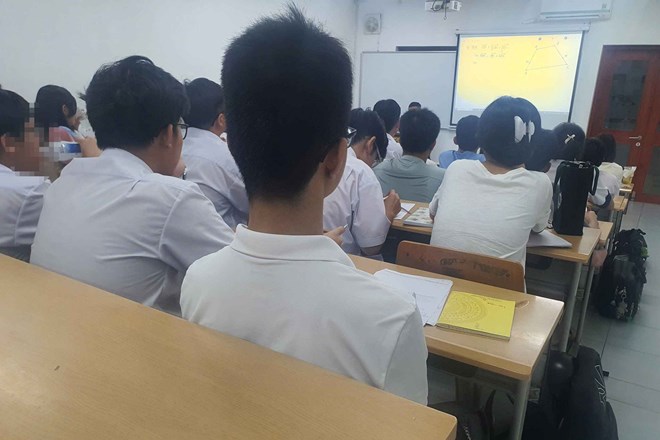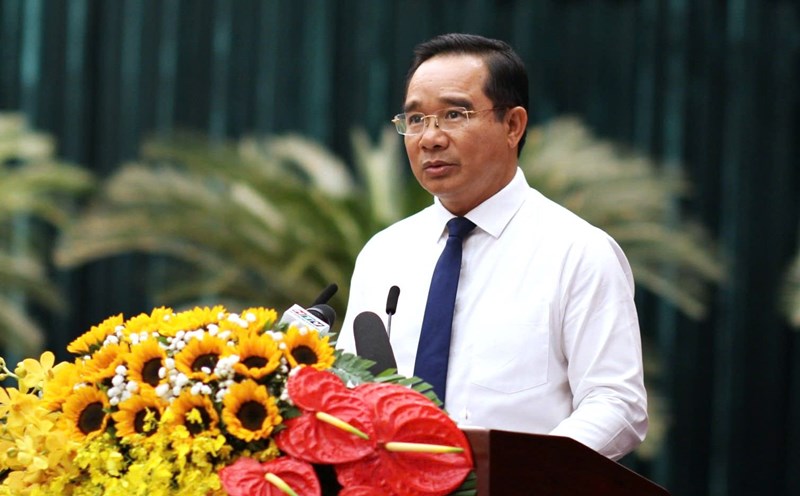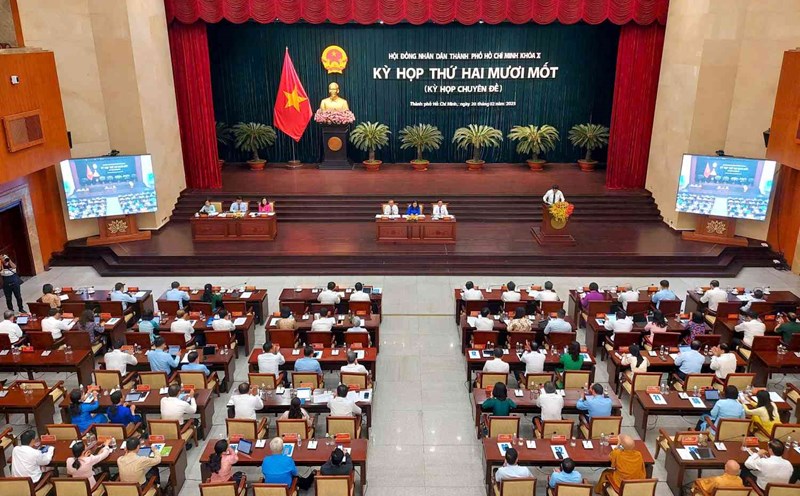Teachers and students in Ho Chi Minh City find ways to teach and learn more
At some tutoring centers in Ho Chi Minh City, the number of students registering to study and teachers requesting to sign contracts with the center to teach extra classes is increasing.

Circular No. 29 of the Ministry of Education and Training regulating extra teaching and learning will officially take effect from February 14.
According to regulations, teachers are not allowed to teach extra classes outside of school for money to students they are teaching at school.
Teachers at public schools are not allowed to participate in the management and operation of extra-curricular teaching but can participate in extra-curricular teaching.
The Circular also stipulates that individuals and organizations wishing to teach must register their business.
According to Lao Dong, many traditional extra-curricular classes outside of school (teachers open classes at home or rent locations) have temporarily stopped operating. See more...
Hanoi Department of Education and Training talks about registering for tutoring business
Many teachers are struggling to find ways to register for extra teaching in accordance with regulations before Circular 29 takes effect.
Circular 29 of the Ministry of Education and Training takes effect from tomorrow (February 14), prohibiting teachers from collecting extra tuition from their regular students and from teaching extra classes at the primary level.
Teachers may also not be allowed to teach extra classes in schools because the Ministry only allows public schools to teach free extra classes to three groups: students who have not yet achieved their goals, students who are gifted, and students in grades 9 and 12 who voluntarily register.
To be able to teach outside of school without violating the regulations under Circular 29, many teachers are struggling. See more...
Ministry of Education responds to some concerns about regulations on extra teaching
Will teachers' salaries increase in 2025? How will the new salary be calculated?
According to Resolution 159/2024/QH15, the National Assembly decided not to increase public sector salaries, including teachers' salaries.
This means that teachers' salaries in 2025 will remain the same, without any increase. Localities still have to implement solutions to create sources for salary reform, but if there is a large surplus, it can be used to invest in key projects, with the condition of committing to ensure sufficient funding for salary reform and social security until 2030, without requesting support from the central budget.
According to Resolution 27-NQ/TW in 2018, the new salary system will abolish the basic salary and salary coefficient, replacing it with a basic salary in a specific amount.
The lowest salary of civil servants and public employees will not be lower than the lowest salary of trained workers in the business sector. At the same time, the salary relationship will be expanded to serve as a basis for determining specific salary levels. The salary increase regime will also be completed to match the new salary table.
Thus, in the future, the entire salary scale of teachers from kindergarten to high school will be converted to the basic salary instead of being calculated according to the current coefficient. However, because there is no adjustment to increase public sector salaries in 2025, the change in salary calculation method may be applied after this time. See more...
Admission plan for Academy of Journalism and Communication
The Academy of Journalism and Communication plans to enroll a total of 2,400 students, of which 2,050 are for regular university admission to the first university degree and the rest are for the second degree program.
The school enrolls 32 majors and training majors, divided into 4 groups: Journalism and Publishing; majors in political theory and social work, economics; majors in History; majors in communications, advertising, international relations and other majors.
Regarding admission methods, the school remains stable as last year, including 3 methods: considering academic records, combined admission and considering based on high school graduation exam scores. However, the ratio of quotas between the methods has changed, specifically:
With the method of considering transcripts, the school plans to reserve 20% of the total quota and consider high school academic results for all 6 semesters.
Combined admission accounts for 30% of the school's total enrollment quota, for candidates with an international English certificate IELTS 6.5 and other equivalent certificates, a minimum SAT certificate of 1200/1600; an average score of 7.0 or higher for all 6 semesters of high school; and good conduct in high school.
The method that schools reserve the most quotas for is still considering high school graduation exam results with a rate of 50%. See more...










